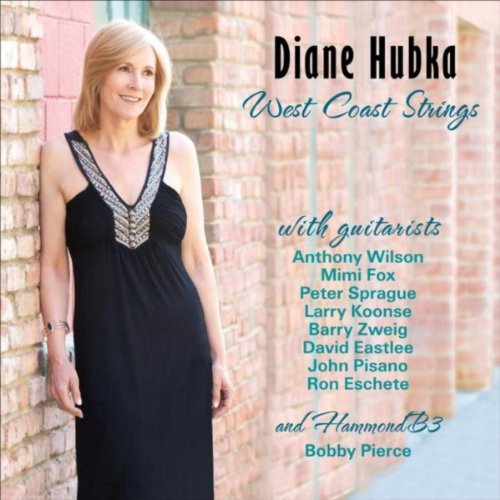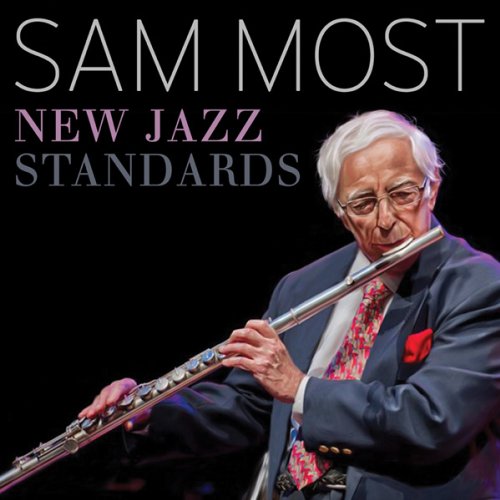My Favorite Things

By Matt Collar
The debut album from jazz piano prodigy Joey Alexander, 2015's My Favorite Things showcases the 11-year-old's stunning keyboard virtuosity. Joining Alexander here is a mix of older and younger associates, including journeyman bassist Larry Grenadier and drummer Ulysses Owens, Jr. Also backing Alexander on various tracks are bassist Russell Hall, drummer Sammy Miller, and up-and-coming firebrand trumpeter Alphonso Horne. Working with Grammy-winning producer Jason Olaine, who previously helmed albums by such jazz luminaries as Roy Hargrove, Chris Potter, Kurt Rosenwinkel, and others, Alexander delivers a handful of jazz standards and songs culled from the American Popular Songbook in adroit, acoustic, swinging fashion.
Juarez Maciel Grupo Muda
Jazzidas

By Tratore
Com influências e referências de diversos estilos e ritmos musicais, como os ritmos afro-caribenhos e os brasileiros, samba, xote e outros. Com uma técnica apurada e uma sonoridade contagiante, o naipe de metais, sax tenor, sax barítono, trompete e trombone, se revezam nas improvisações jazzísticas, desenvolvendo diferentes linhas melódicas e conduzindo o ouvinte ao universo único da música instrumental.
Personnel:
Juarez Maciel
piano, arranjos e composições;
eduardo campos – bateria e vibrafone <> felipe fantoni - baixo acústico <> bill lucas - percussão <> paulo thomaz - violino <> jonas vitor - sax tenor <> wagner souza - trompete / flugelhorn <> marco daniel - trompete naipe ( faixa 1 – 5 - 6 ) <> juventino - trompete ( 1 – 3 – 5 – 6 ) <> roberto jr. sax barítono <> leonardo brasilino – trombone e arr. sax barítono <> fabio gonçalves - guitarra ( faixa 1 -3 - 5 ) <> pablo passini - guitarra ( faixa 2 - 4 – 6) <> improvisos safira – jonas vitor /sax <> wagner souza / trompete <> fabinho gonçalves / guitarra <> improvisos origami – wagner souza / trompete <> breno mendonça / sax tenor <> improvisos fora do tempo – jonas vitor / sax tenor <> wagner souza / trompete surdina <> improvisos funk estrela – breno mendonça / sax tenor <> wagner souza / trompete <> improviso náufragos - breno mendonça / sax tenor <> imrpovisos diadorim – brasilino / trombone <> pablo passini - guitarra
Recording:
gravação e mixagem - bruno corrêa estúdio murillo corrêa belo horizonte - minas / brasil -
março a julho de 2011.
Masterização - andré cabelo
Karin Krog & Steve Kuhn
Break Of Day

By Marlbank/SG
The appeal of this album of standards from veteran Norwegian jazz vocals star Karin Krog and pianist Steve Kuhn, who, as a 21-year-old in 1960 found himself in John Coltrane’s quartet, is largely nostalgic.
At the heart of it all the duo tantalise and glimmer, guest appearances broadening the palette added from tenorist Eric Alexander and from trumpeter Lew Soloff who sadly died earlier this year. ‘I’m Old Fashioned’ is the opener of the album recorded in New York over the last two days of October 2013 and that old fashioned thing Krog conjures so matter-of-factly from the Jerome Kern/Johnny Mercer song could be the subtitle of an album that shelters under the welcoming canopy of the Great American Songbook.
Krog has written lyrics to several of the songs, contributing effortlessly to the mournful atmosphere of Carla Bley’s ‘Break of Day in Molde’ a performance that comes complete with a heartbreaking trumpet part from Lew Soloff who also later crops up on Tadd Dameron’s ‘You Do Something to Me’ and bluesman Jimmy Witherspoon’s ‘Time’s Getting Tougher than Tough’.
Krog might be thought of as the Norwegian equivalent of Annie Ross but really she stands unique as a legend in her own land, her fame understandably reaching far beyond Nordic climes, that lilt of hers and empathy with classic jazz so distinctively conveyed on dozens of records over a long career to date.
There’s no sense of hurry or quick fixes here at all and if like Krog you’re old fashioned too you’ll like this mid-tempo album a good deal. Kuhn is an ideal accompanist, not showy at all, with a great way of choosing and accenting just the right chord and interpreting even the most subtle of Krog’s hints. Eric Alexander is also a very retro kind of player in the Scott Hamilton school and he’s perfect casting here breaking through on Kenny Dorham tune ‘Scandia Skies’ Krog has written lyrics to.
In her liner note to Break of Day Krog writes: “I heard ‘Scandia Skies’ played by the wonderful trumpeter Kenny Dorham in the Montmartre jazz club in Copenhagen at some time in the late 60s… Kenny gave me a copy of the music and later I wrote some words to it. I thought that it was quite appropriate to include this tune as Steve Kuhn had played in Kenny’s band earlier on in his career.”
And ‘appropriate’ in other respects (history, respect for the tradition, timing, acute sensibility) is a word that recurs so often on this tasteful album, everything is just so. A very late night and definitely quietly affecting set: Krog and Kuhn pull out all the stops on ‘Everytime We Say Goodbye’ as they themselves say goodbye on the final track.
Bob James & Nathan East
The New Cool

The debut album from jazz piano prodigy Joey Alexander, 2015's My Favorite Things showcases the 11-year-old's stunning keyboard virtuosity. Joining Alexander here is a mix of older and younger associates, including journeyman bassist Larry Grenadier and drummer Ulysses Owens, Jr. Also backing Alexander on various tracks are bassist Russell Hall, drummer Sammy Miller, and up-and-coming firebrand trumpeter Alphonso Horne. Working with Grammy-winning producer Jason Olaine, who previously helmed albums by such jazz luminaries as Roy Hargrove, Chris Potter, Kurt Rosenwinkel, and others, Alexander delivers a handful of jazz standards and songs culled from the American Popular Songbook in adroit, acoustic, swinging fashion.
Juarez Maciel Grupo Muda
Jazzidas

By Tratore
Com influências e referências de diversos estilos e ritmos musicais, como os ritmos afro-caribenhos e os brasileiros, samba, xote e outros. Com uma técnica apurada e uma sonoridade contagiante, o naipe de metais, sax tenor, sax barítono, trompete e trombone, se revezam nas improvisações jazzísticas, desenvolvendo diferentes linhas melódicas e conduzindo o ouvinte ao universo único da música instrumental.
Personnel:
Juarez Maciel
piano, arranjos e composições;
eduardo campos – bateria e vibrafone <> felipe fantoni - baixo acústico <> bill lucas - percussão <> paulo thomaz - violino <> jonas vitor - sax tenor <> wagner souza - trompete / flugelhorn <> marco daniel - trompete naipe ( faixa 1 – 5 - 6 ) <> juventino - trompete ( 1 – 3 – 5 – 6 ) <> roberto jr. sax barítono <> leonardo brasilino – trombone e arr. sax barítono <> fabio gonçalves - guitarra ( faixa 1 -3 - 5 ) <> pablo passini - guitarra ( faixa 2 - 4 – 6) <> improvisos safira – jonas vitor /sax <> wagner souza / trompete <> fabinho gonçalves / guitarra <> improvisos origami – wagner souza / trompete <> breno mendonça / sax tenor <> improvisos fora do tempo – jonas vitor / sax tenor <> wagner souza / trompete surdina <> improvisos funk estrela – breno mendonça / sax tenor <> wagner souza / trompete <> improviso náufragos - breno mendonça / sax tenor <> imrpovisos diadorim – brasilino / trombone <> pablo passini - guitarra
Recording:
gravação e mixagem - bruno corrêa estúdio murillo corrêa belo horizonte - minas / brasil -
março a julho de 2011.
Masterização - andré cabelo
Karin Krog & Steve Kuhn
Break Of Day

By Marlbank/SG
The appeal of this album of standards from veteran Norwegian jazz vocals star Karin Krog and pianist Steve Kuhn, who, as a 21-year-old in 1960 found himself in John Coltrane’s quartet, is largely nostalgic.
At the heart of it all the duo tantalise and glimmer, guest appearances broadening the palette added from tenorist Eric Alexander and from trumpeter Lew Soloff who sadly died earlier this year. ‘I’m Old Fashioned’ is the opener of the album recorded in New York over the last two days of October 2013 and that old fashioned thing Krog conjures so matter-of-factly from the Jerome Kern/Johnny Mercer song could be the subtitle of an album that shelters under the welcoming canopy of the Great American Songbook.
Krog has written lyrics to several of the songs, contributing effortlessly to the mournful atmosphere of Carla Bley’s ‘Break of Day in Molde’ a performance that comes complete with a heartbreaking trumpet part from Lew Soloff who also later crops up on Tadd Dameron’s ‘You Do Something to Me’ and bluesman Jimmy Witherspoon’s ‘Time’s Getting Tougher than Tough’.
Krog might be thought of as the Norwegian equivalent of Annie Ross but really she stands unique as a legend in her own land, her fame understandably reaching far beyond Nordic climes, that lilt of hers and empathy with classic jazz so distinctively conveyed on dozens of records over a long career to date.
There’s no sense of hurry or quick fixes here at all and if like Krog you’re old fashioned too you’ll like this mid-tempo album a good deal. Kuhn is an ideal accompanist, not showy at all, with a great way of choosing and accenting just the right chord and interpreting even the most subtle of Krog’s hints. Eric Alexander is also a very retro kind of player in the Scott Hamilton school and he’s perfect casting here breaking through on Kenny Dorham tune ‘Scandia Skies’ Krog has written lyrics to.
In her liner note to Break of Day Krog writes: “I heard ‘Scandia Skies’ played by the wonderful trumpeter Kenny Dorham in the Montmartre jazz club in Copenhagen at some time in the late 60s… Kenny gave me a copy of the music and later I wrote some words to it. I thought that it was quite appropriate to include this tune as Steve Kuhn had played in Kenny’s band earlier on in his career.”
And ‘appropriate’ in other respects (history, respect for the tradition, timing, acute sensibility) is a word that recurs so often on this tasteful album, everything is just so. A very late night and definitely quietly affecting set: Krog and Kuhn pull out all the stops on ‘Everytime We Say Goodbye’ as they themselves say goodbye on the final track.
Bob James & Nathan East
The New Cool

By Andy Kellman
Recorded in five studios in Nashville and nearby Franklin, Tennessee, The New Cool is something of a follow-up to Nathan East's self-titled 2014 album, though it's billed to the bassist and his fellow Fourplay member, Bob James. Like Nathan East, The New Cool is a Yamaha release. The label wing of the manufacturer also supplied the duo with instruments and enabled them to make this predominantly acoustic set of eight originals and three interpretations. Drummer Scott Williamson, percussionist Rafael Padilla, and an orchestra -- with David Davidson as concertmaster -- are all involved, yet they're employed sparingly and leave the spotlight to East and James. The album sounds like it was easy and fun to make -- one can sense joy and deep focus in the interplay -- as the material is predominantly amiable and laid-back. It's almost entirely instrumental, with East adding some occasional soft scatting, while Vince Gill drops by for the lone "proper" vocal inclusion on an elegant recasting of Willie Nelson's "Crazy." Just when it seems as if The New Cool will end as it began, in sunny and mellow form, the closing "Turbulence" develops into what's easily the album's most active cut. Composer James lets loose with some athletic electric piano, East's bass is at its taut and melodic best, and Williamson, known most for his work on contemporary country and Christian sessions, shows that he can also hang with two crucial jazz rhythm-section dignitaries. This is a pleasant, if inessential, addition to the catalogs of the two musicians.
Tony Bennett & Bill Charlap
The Silver Lining: The Songs Of Jerome Kern

By Stephen Thomas Erlewine
The Silver Lining: The Songs of Jerome Kern functions as something of an answer to its predecessor, Cheek to Cheek. That 2014 duet album with Lady Gaga was suitably brassy and snazzy, relying on well-loved standards and pizzazz -- the kind of thing designed to stoke nostalgia vibes -- but The Silver Lining is a purer jazz record, an intimate songbook collaboration with pianist Bill Charlap; the difference can be heard simply in comparing the versions of "I Won't Dance" that pop up on the two albums -- the Gaga swings boldly, the Charlap rendition carries a wry resignation. Songbooks have been a standard item for Bennett throughout the years but if The Silver Lining recalls any specific album in the vocalist's discography, it's The Tony Bennett/Bill Evans Album, a record released in 1975 when Bennett dropped off the major-label radar and his name was perhaps as well-known to record buyers as that of Evans. While there may be a slight wattage differential between Bennett and Charlap, the difference is due to scale: Bennett is a household name; Charlap is a star among modern mainstream jazz fans. Accordingly, Bennett treats the pianist as an equal, giving him plenty of room to spin out long, liquid solos, passages that seem to glide out imperceptibly from his understated support. Often, The Silver Lining features little more than just the singer and the pianist -- when they're augmented by other musicians, it's just bass and drums, offering a bit of rhythm and color -- and this sparseness never seems austere due to the inherent warmth of the musicians' easy interplay, not to mention their individual voices. Both aspects are subtly showcased on The Silver Lining, and it's that delicate dance, where Bennett and Charlap enjoy playing together and apart, that makes this so charming.
Recorded in five studios in Nashville and nearby Franklin, Tennessee, The New Cool is something of a follow-up to Nathan East's self-titled 2014 album, though it's billed to the bassist and his fellow Fourplay member, Bob James. Like Nathan East, The New Cool is a Yamaha release. The label wing of the manufacturer also supplied the duo with instruments and enabled them to make this predominantly acoustic set of eight originals and three interpretations. Drummer Scott Williamson, percussionist Rafael Padilla, and an orchestra -- with David Davidson as concertmaster -- are all involved, yet they're employed sparingly and leave the spotlight to East and James. The album sounds like it was easy and fun to make -- one can sense joy and deep focus in the interplay -- as the material is predominantly amiable and laid-back. It's almost entirely instrumental, with East adding some occasional soft scatting, while Vince Gill drops by for the lone "proper" vocal inclusion on an elegant recasting of Willie Nelson's "Crazy." Just when it seems as if The New Cool will end as it began, in sunny and mellow form, the closing "Turbulence" develops into what's easily the album's most active cut. Composer James lets loose with some athletic electric piano, East's bass is at its taut and melodic best, and Williamson, known most for his work on contemporary country and Christian sessions, shows that he can also hang with two crucial jazz rhythm-section dignitaries. This is a pleasant, if inessential, addition to the catalogs of the two musicians.
Tony Bennett & Bill Charlap
The Silver Lining: The Songs Of Jerome Kern

By Stephen Thomas Erlewine
The Silver Lining: The Songs of Jerome Kern functions as something of an answer to its predecessor, Cheek to Cheek. That 2014 duet album with Lady Gaga was suitably brassy and snazzy, relying on well-loved standards and pizzazz -- the kind of thing designed to stoke nostalgia vibes -- but The Silver Lining is a purer jazz record, an intimate songbook collaboration with pianist Bill Charlap; the difference can be heard simply in comparing the versions of "I Won't Dance" that pop up on the two albums -- the Gaga swings boldly, the Charlap rendition carries a wry resignation. Songbooks have been a standard item for Bennett throughout the years but if The Silver Lining recalls any specific album in the vocalist's discography, it's The Tony Bennett/Bill Evans Album, a record released in 1975 when Bennett dropped off the major-label radar and his name was perhaps as well-known to record buyers as that of Evans. While there may be a slight wattage differential between Bennett and Charlap, the difference is due to scale: Bennett is a household name; Charlap is a star among modern mainstream jazz fans. Accordingly, Bennett treats the pianist as an equal, giving him plenty of room to spin out long, liquid solos, passages that seem to glide out imperceptibly from his understated support. Often, The Silver Lining features little more than just the singer and the pianist -- when they're augmented by other musicians, it's just bass and drums, offering a bit of rhythm and color -- and this sparseness never seems austere due to the inherent warmth of the musicians' easy interplay, not to mention their individual voices. Both aspects are subtly showcased on The Silver Lining, and it's that delicate dance, where Bennett and Charlap enjoy playing together and apart, that makes this so charming.
















